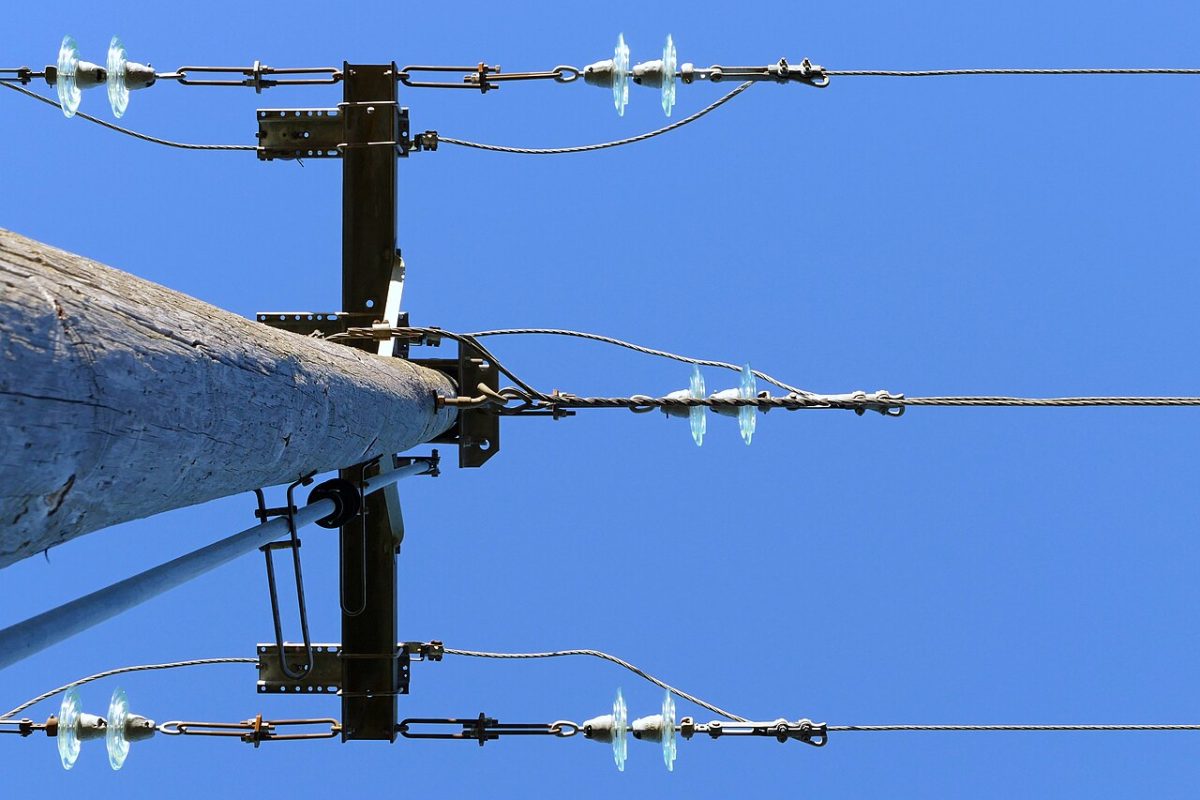






Demonstration for the “Comfort Women” statue in Berlin-Moabit, 13 October 2020. Photos: Hossam el-Hamalaway
A bronze “Statue of Peace” was erected in Berlin-Moabit on 28 September. The statue, created by Kim Seo-Kyung und Kim Eun-Sung. remembers over 200,000 women and girls who were raped and forced into sexual slavery during the Asia-Pacific war (1931-45). Many were from Korea, then a Japanese colony. They were euphemistically called “comfort women”, “Trostfrauen” in German.
Nataly Jung-Hwa Han from the Korea Verband says that “the statue acknowledges the courage of the survivors in breaking their silence. And it stands against sexual violence in armed conflicts worldwide.”
On 1 October, the Japanese foreign minister Toshimitsu Motegi demanded that his German counterpart Heiko Maas remove the statue. The Bezirksamt (district authority) Mitte, which includes Moabit, complied.
On 13 October, the Bezirksamt Mitte made a semi-U-turn, announcing that the statue can stay temporarily. This was the result of local protest. The same day, hundreds of people marched from the statue to Moabit town hall to hand in a petition demanding that the statue stay.
The mayor of Mitte, Stephan von Dassel (Bündnis 90 / the Green party) accepted the petition and addressed the rally. However, he insisted that he had received complaints from his Japanese constituents, saying that they were offended by the statue.
The LINKE fraction in the Berlin-Mitte parliament has spoken out in defence of the statue. Andreas Böttger from the fraction said: “the ‘comfort women’ are a historical fact and the Statue of Peace in Moabit reminds us of this terrible part of history … the removal of the statue would be a disastrous signal for a critical discussion about sexualised violence in martial conflicts”.
Clearly the campaign to keep the statue is not over. Phil Butland spoke to some activists campaigning to keep the statue and to oppose sexual violence worldwide.
Firstly, can you quickly introduce yourself? Who are you? Why are you involved in this campaign?
Mugi S: I have a Japanese passport and I was born in Tokyo, but I grew up abroad for most of my life. I’m a filmmaker, who’s also involved in various political groups and activities. I am not directly part of this campaign, but I wholeheartedly stand by the statue and those who are fighting against sexual violence and historical revisionism.
Fumiko Mia Yamamoto: I’m a Japanese-French artist and academic. My PhD research is about the role of art in feminist and anti-colonial anti-war movements in Asian diasporas in Europe and North America, specifically in the context of the after-life of Japanese imperialism and the atomic bombing of Hiroshima and Nagasaki.
Thu Nguyen: My name is Thu. I work in healthcare technology. I joined the Korea Verband last year after attending their screening of the movie “Shusenjo: The Main Battleground Of Comfort Women Issue” in attendance with director Miki Dezaki. I had heard about the “Comfort Women” issue before; but didn’t realise there’s such a big resistance to acknowledge this issue by the Japanese government and revisionist groups.
I just couldn’t bear the thought of all the pain and suffering that these girls and women had to endure; and then to have their experiences be considered lies; and see the continuation of this exact mechanism today with victims of sexual assault. That’s why I try to help out this incredible association as much as I can. Currently I am involved in the social media team of the “Trostfrauen” action group.
What does the statue mean to you?
FMY: The Statue of Peace is made by a very brilliant and lovely, kind South Korean artist couple Kim Seo-kyung and Kim Eun-sung. It commemorates the womxn and girls from the countries/regions occupied, attacked, colonised by Japan. They were kidnapped and forced into sexual slavery for the Japanese army, in mass rape camps during WW2. The statue is located in a very quiet, residential neighbourhood of Berlin. Many of the neighbours said they love the statue, many have taken photos with her, left flowers and toys in her lap and at her feet.
MS: The statue is beautiful for various reasons. The Japanese government and the conservative bunch of the population are up in arms, because they are afraid and they damn well should be. I think this monument radiates with strength and resilience, at the same time allowing space for learning/unlearning and building altruistic connections with one another.
TN: For me, the Statue of Peace is a memorial to commemorate all victims of sexual wartime violence, especially those in the Asian-Pacific War. Their pain and courage should never be forgotten. The war crimes should be visible, remembered and discussed, so that this will never happen again.
What was your reaction on hearing that the Japanese government and German foreign ministry had intervened?
MS: Angered, but not at all surprised.
FMY: I was angry, but it’s not at all surprising. The Japanese government and Japanese nationalists have often tried to censor statues that commemorate the “comfort women”. Sometimes successfully like in Manila in 2017 and 2019. Germany’s stance is revolting, but also not that surprising. By removing the statue, Germany is taking the side of the perpetrators. It is also actively suppresses the visibility of institutionalised sexual violence as well as sexual violence in general. We want Germany to take an unequivocal stance against sexualized war crimes; and to be a country that values the hard work of historical remembering. Maintaining smooth diplomatic relations should not take precedence over the survivors’ right to commemoration.
The Japanese government characterizes this issue as only about Korea, but the victims came from many countries, including from Europe (the Netherlands and Britain). Some of the survivors are still alive, and they have bravely come forward. We must continue to protect this statue as a tribute to all survivors and victims of sexual violence. Such violence not only during WWII, but also for those still fleeing violence around the world today.
TN: First I was surprised how fast the news spread to such a high level. But knowing how the minister of exterior found it so urgent to speak directly to the German minister, made me realise how important and right the installation of the Statue of Peace is. It is a shame that the Japanese government is so unwilling to acknowledge the atrocities they did to so many countries and even tries to rewrite history. Some Japanese nationalists say that the Japanese government already apologized. If it was a sincere apology, they wouldn’t have a problem with the Statue of Peace. The Comfort Women issue is still being silenced.
The reaction of the German ministry was also not surprising. Germany also has issues acknowledging their war atrocities. Why was the Sinti and Roma memorial only built after years of begging by this minority? Why is it now in danger of being removed? Why don’t they acknowledge that there’s a huge right-wing highly trained network operating right now, which is the direct result of selective memory culture and silencing of the victims. So both countries would benefit of this statue and they should be grateful that the Korea Verband has done this important work and raised awareness to this issue.
How do you react to Stephan von Dassel’s statement that opposing the statue is not the same as justifying sexual violence?
MS: I understand that his position is somewhat comparable to a pawn in a game of chess, but I think that’s just an easy excuse to justify guilt.
FMY: His statement is truly absurd. How can censoring a memorial against sexual violence be understood as anything else but suppressing the perspectives of victims/survivors, and hence justifying sexual violence? Post-WW2 Germany has never been about “justice”, only “order” – and at best some kind of minimal performative self-flagellation discourse that always, always centers and re-legitimises and elevates white Germanness.
TN: It’s insincere. Removing the statue is like silencing victims of sexual violence. The stories of so many victims can be heard in Berlin-Moabit right now. People who have never heard of the “Comfort Women” issue are now being exposed to it. They can see the clear continuation of sexual violence decades ago and how it is now. How are victims handled then and now? Did something change?
Looking at how Stephan von Dassel presents himself, this decision does not fit into what he stands for. He presents himself as someone who fights against nationalism, colonialism and seems to be a feminist. This is exactly what the Statue of Peace is about. During the celebration to renaming the M-Straße in Berlin he admitted to having a knowledge gap about German colonialism. Here we present another knowledge gap on which he can work. What is he doing to raise awareness against sexual violence? Again, Berlin can be grateful to have this statue.
Von Dassel also says that he has received complaints from Japanese people in Berlin about the statue. Who are these people and what are their arguments?
MS: I don’t know who these people are, because I have almost no connection to the Japanese community here, except for the few expats I’ve met through my past restaurant job. Let’s not forget that we have people like that in Germany too. Like the ones who are whining about the recently installed monument for the victims of police violence in Oranienplatz.
TN: I got to know a few of them hate-commenting on twitter about the Statue of Peace. Looking at their profiles, you can tell they are Japanese nationalists. But even Japanese people who aren’t nationalists are against the statue. But who can blame them, if the government and the history books all tell the story about how the “comfort women” were prostitutes? If they have been taught this all their lives and the consensus in their Japanese surroundings is the same, then it’s hard to expect them to reflect this.
Their arguments:
- “The Japanese government already apologized”.
Yes, there was an apology in 2015 but the actions taken from then on spoke a whole different story. The victims also felt like it was not adequate because it didn’t mention violations of human rights by Japan, nor accept legal responsibility. Further, the apology was negotiated without full participation of the victims. Lots of legal cases against the Japanese government by victims have been dropped and there’s an active campaign about hiding or re-writing this part of history in school books in Japan. - “These girls and women were prostitutes who got rich”.
This is false. They were abducted and lived on the bare minimum. - “It’s all a lie by South Korea to damage the image of Japan because of jealousy, greed, inferior complex etc.”
FMY: He presented it as if it were only Koreans – and said that he also must listen to the Japanese citizens of Berlin, many of whom complained to him. We started yelling “We’re also Japanese! They don’t speak for all of us!”. It’s so annoying and telling on so many levels. Of course we totally centre and support our Korean comrades and friends but we don’t want the media, the Mitte Mayor, and the Japanese government to use their centrality in this group as a way to twist the truth; to make it fit that false narrative that it’s only a “Korea vs. Japan” thing, and that our group is somehow connected to the Korean government.
One of the hurtful problems is also that the Berlin Mitte District and its Mayor, and the media, see a lot of East Asian faces and they think “OK everyone’s Korean here”. And they also assume that they can’t possibly be German, that we are all foreigners and that therefore our issues do not concern them and should not take up any space within their realm of pure Germanness.
We are not a “pro-South-Korea group”. I don’t know what that even would mean. We are ANTI sexual violence and ANTI historical revisionism. Many members of our group are South Korean, and many are Japanese; and many are German, and many are from other places. And we are PRO the womxn in/from Korea and 13 other countries who were forced into sexual slavery for the Japanese military. And we are PRO everyone who has experienced sexual violence and is being threatened and silenced by the perpetrator(s), worldwide.
All of humanity is supposed to identify with Rachel from Friends or whatever and Michaelangelo’s David is seen as representing a male ideal, but a person in a hanbok (Editor: traditional Korean dress) must necessarily be political propaganda by the South Korean government? This reveals the white gaze and Eurocentrism at play in the logic of the Mitte District Office’s distrust and dislike of the statue.
The Korea Verband has stated that it expects the red-red-green coalition to show more backbone. What are your demands on politicians in Berlin-Mitte?
TN: If Germany is sincere about accounting for the past, it should set an example to Japan:
- Be an ally to sexual violence victims and show them that perpetrators shall be held accountable
- The truth should be heard and don’t play into the hands of revisionists and nationalists
- Take an example of San Francisco and just keep the statue
- Germany is in the right power position to be able to keep the statue, unlike the Philippines for example because of their economic power
MS: I demand that the statue stays. I also think that the queer feminist spaces like liebig34 which recently got evicted should have also been allowed to stay.
What are the next steps in the campaign. And how can people help?
FMY: the fight is not over. The city authorities didn’t decide to keep the statue, they just couldn’t legally force its removal on the day they gave as ultimatum (October 14th) – because the group formally challenged the decision in court. It’s not like the district office that ordered its removal changed its mind. It now depends on the process and outcome of the court’s deliberations, which may take weeks or months.
MS: This is not some dust-collecting dispute between wartime Japan versus Korea. I think for those who are new to this topic, it’s important to start by actively paying attention and listening to the victims and those who are supporting the victims. For example, there are so many unnamed and un-commemorated victims of sexual violence and genocide during the German colonial rule in places like Namibia and Tanzania. Many countries still struggle to acknowledge and heal the scars of their colonial past and this of course includes both Germany and Japan. Colonialism isn’t a thing of the past. We are still actively fighting for justice, because there’s never been justice.
TN: There are seven action items you can take to support the campaign listed on our website.
Now that the Statue is allowed to stay for the time being support in form of funding would help to cover the legal costs. Spread the word about this issue in your social circles. Inform yourself further about this issue.
Sign the petition to keep the statue here.




